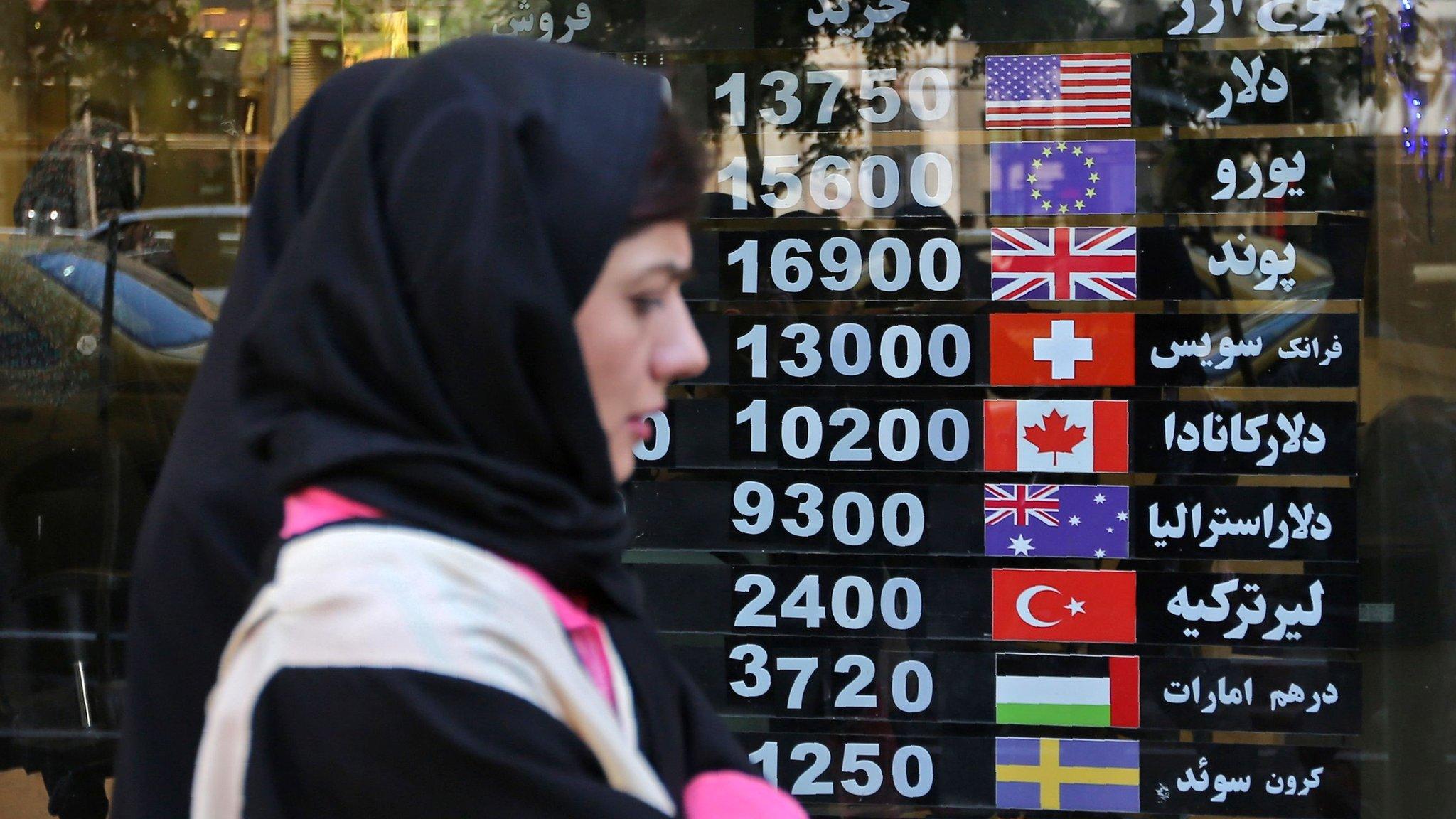Iran nuclear deal: Macron and Rouhani agree to look at conditions for talks
- Published
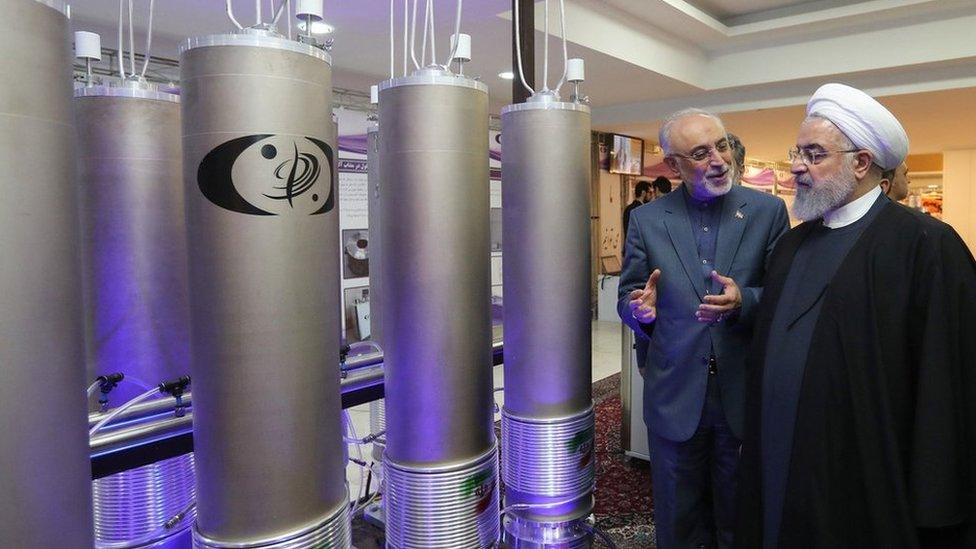
President Rouhani (R) inspecting nuclear technology earlier this year
France and Iran have agreed to look at conditions for resuming talks to try to save Tehran's nuclear deal with world powers, President Emmanuel Macron says.
During a phone call with President Hassan Rouhani, Mr Macron expressed his "strong concern" about the consequences of abandoning the 2015 accord.
Mr Rouhani called on European countries to act urgently to save the deal aimed at curbing Iran's nuclear programme.
The agreement has been in jeopardy since the US pulled out last year.
President Donald Trump later imposed punishing sanctions on Iran. In May, Iran responded by stepping up production of enriched uranium, used to make reactor fuel but also potentially nuclear bombs.
Iran has already stockpiled more enriched uranium than the country was supposed to. The country has been expected to announce on Sunday that it will breach another limit by taking the enrichment process to a higher level.
It is going to be hard - if not impossible - to get the Americans back on board, BBC Diplomatic Correspondent Jonathan Marcus writes.
The Europeans are struggling to do much to relieve the pressure on Iran from US sanctions and the fate of the nuclear deal itself is now more precarious than ever, he adds.
What did Macron and Rouhani say?
Mr Macron said he was very concerned about the "risk of a further weakening" of the treaty and "the consequences that would necessarily follow".
The statement said the two leaders had agreed "to explore by 15 July the conditions for the resumption of dialogue between all parties" - beyond a Sunday deadline announced by Iran.
Mr Rouhani had previously given the five countries still party to the deal - the UK, France, Germany, China and Russia - until Sunday to meet their commitment to shield Iran from the sanctions' effects.
The French statement also said Mr Macron would continue consultations with the Iranian side and international partners to reduce tensions.
The BBC's James Landale went to Tehran's Grand Bazaar to see what people think of the stringent sanctions
President Rouhani urged the European signatories to act to save the deal.
"Lifting all sanctions can be the beginning of a move between Iran and six major powers," Mr Rouhani said.
What is enriched uranium?
Enriched uranium is produced by feeding uranium hexafluoride gas into centrifuges to separate out the most suitable isotope for nuclear fission, called U-235.
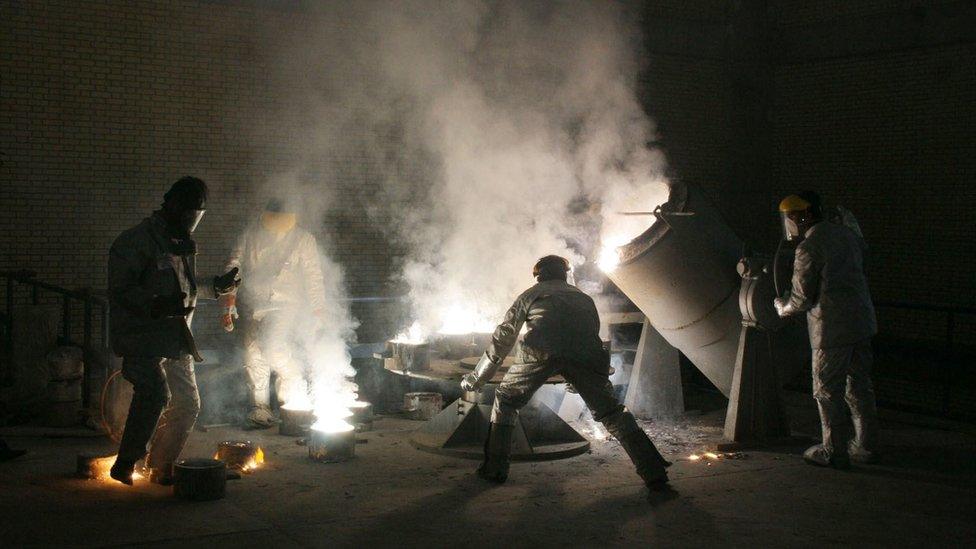
Prior to enrichment, uranium ore concentrate must be converted into uranium hexafluoride
Under the deal, Iran is only permitted to produce low-enriched uranium, which has a 3-4% concentration of U-235, and can be used to produce fuel for nuclear power plants.
Weapons-grade uranium is 90% enriched or more.
The deal also restricted Iran to stockpiling no more than 300kg (661lb) of the low-enriched uranium.
A stockpile of 1,050kg, however, could be further enriched later into enough material to build one bomb, according to the Arms Control Association.
Iran strongly denies any intention to build nuclear weapons.


- Published1 July 2019
- Published23 November 2018
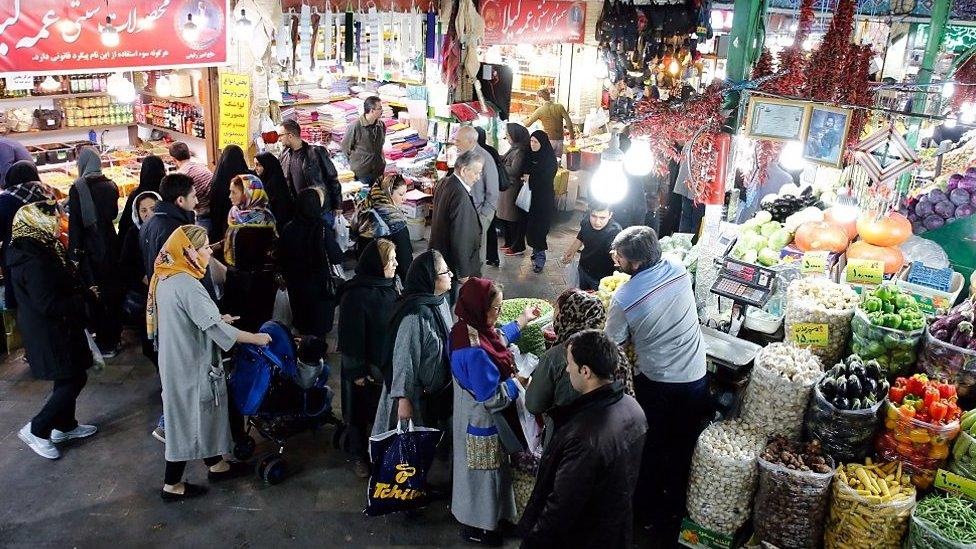
- Published1 July 2019
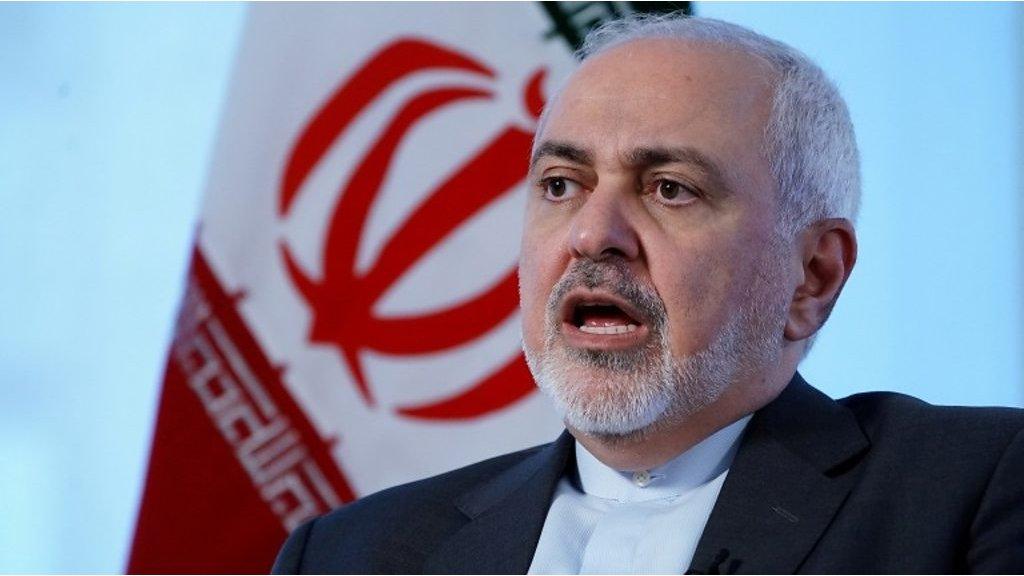
- Published30 April 2021
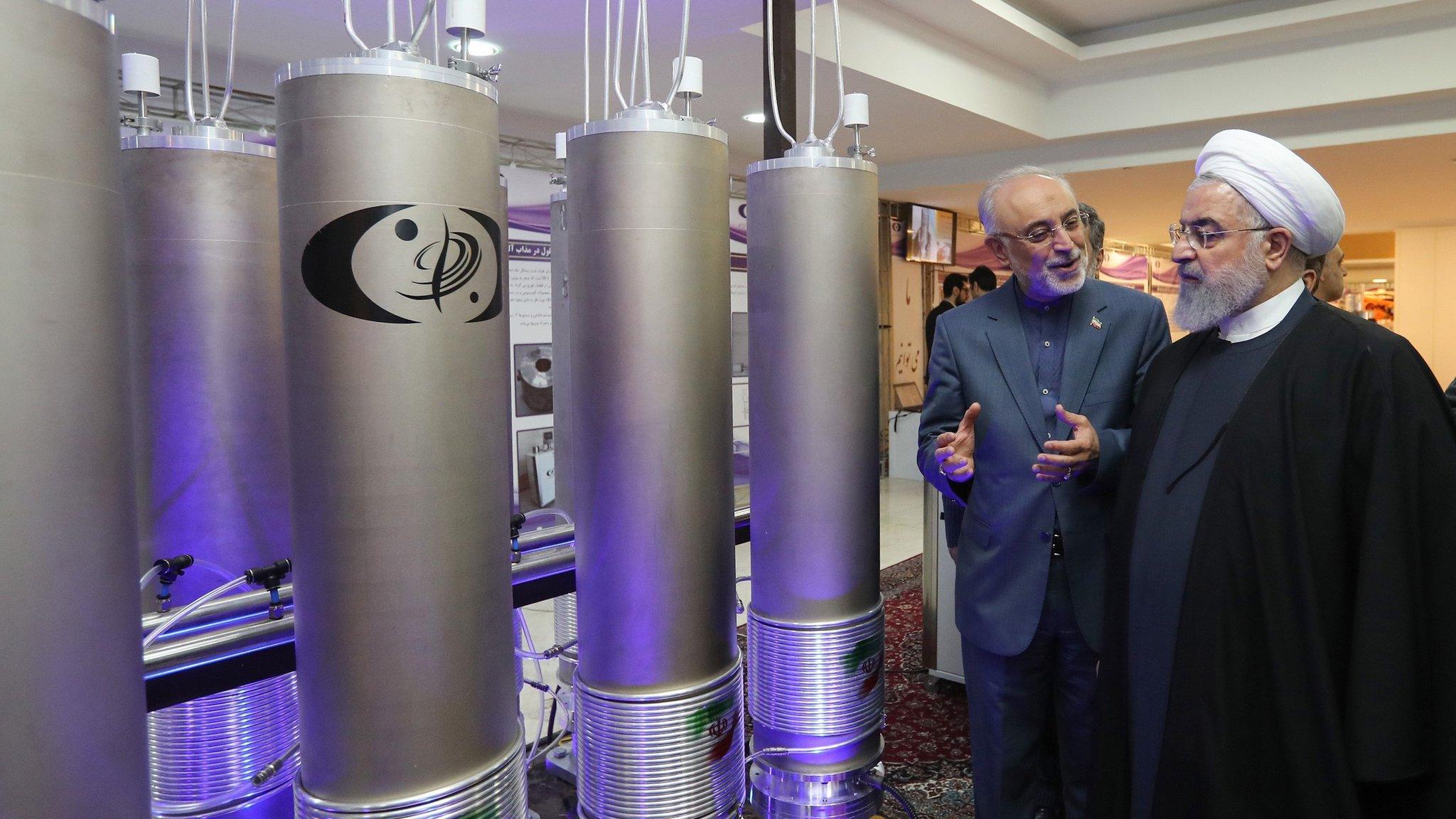
- Published23 November 2021
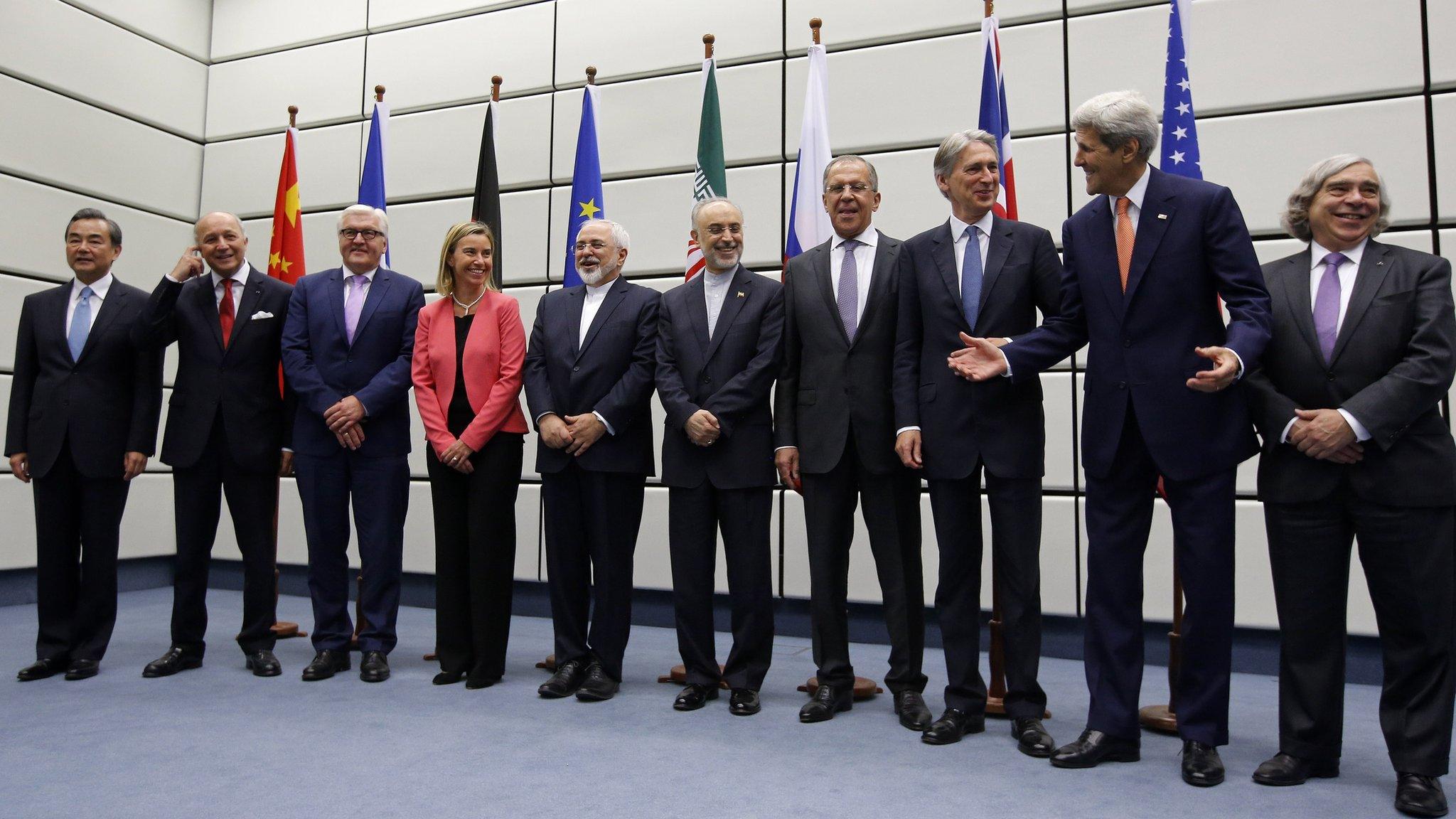
- Published9 December 2019
